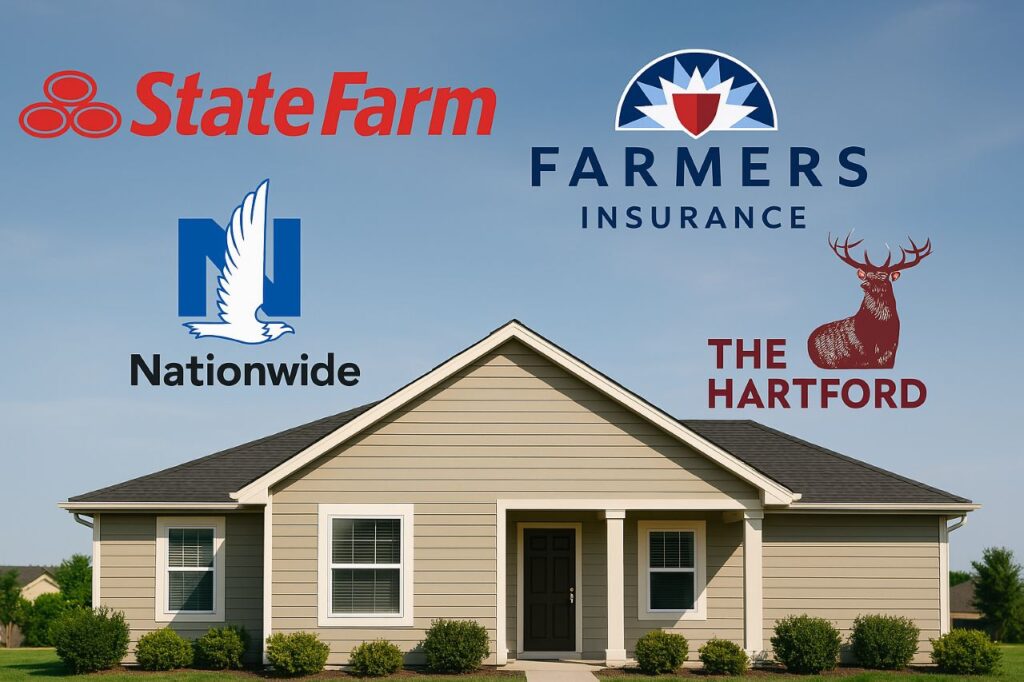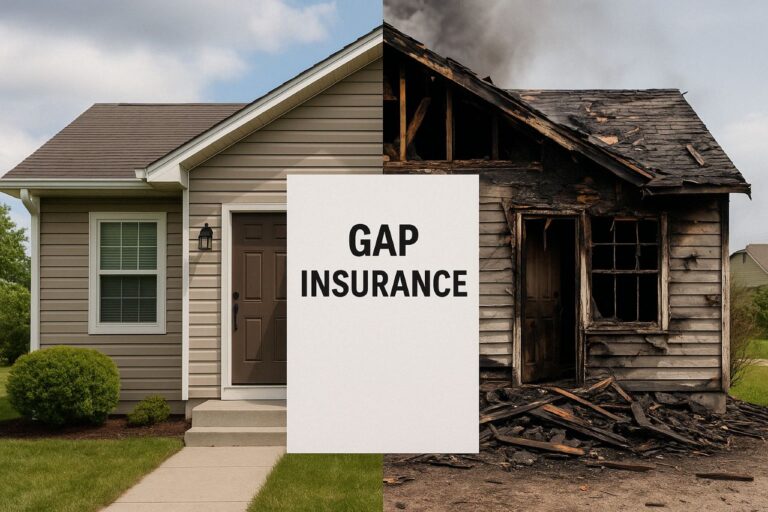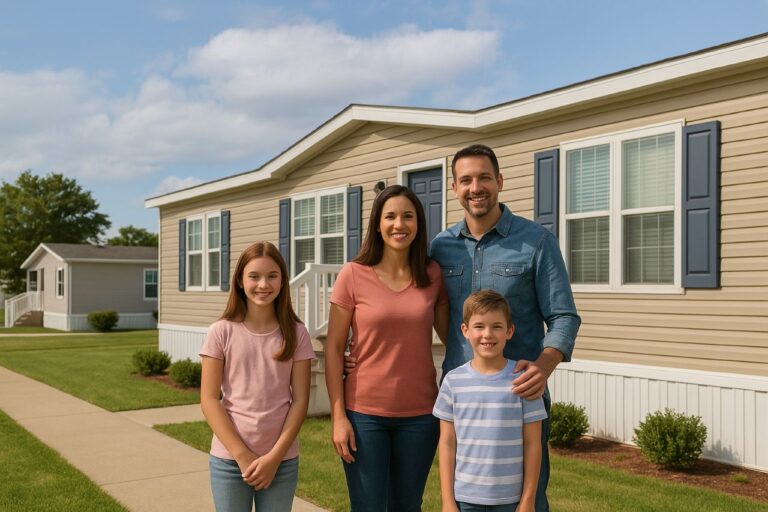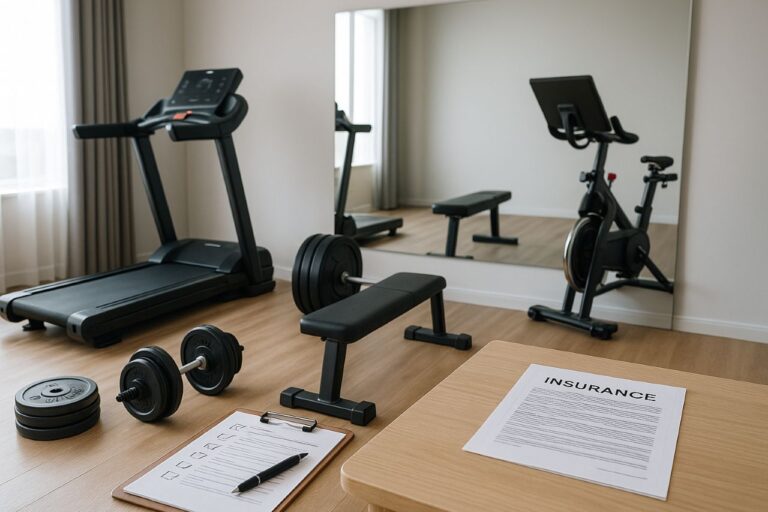Reliable Adult Family Home Insurance That Protects
Adult Family Home Insurance is essential for protecting people and the ownership of the people they are responsible for. If you run a nursing home, even small cases can be a big debt. The correct cover will keep your business safe and compliant.
From property damage to personal injury claims, home insurance for adults offers security. You can focus on care and remain protected from costly risks. In this guide we will explore why it is important and how to make a careful choice.
Table of Contents
What Is Adult Family Home Insurance?
Adult home insurance is a special form of cover, especially tailored to small homes. This provides elderly people, people with disabilities, or others who need support in daily life and are treated personally. In contrast to regular home insurance that protects only the structure and contents of your home, home insurance for adults covers unique risks with running a care business. The insurance protects both real estate and House activities, including medical services, body care and interactions with residents.
A proper insurance policy can make a big difference in ensuring family homes, providing adequate protection to residents, and protecting against financial losses due to accidents, injuries or property damage. This cover is important to avoid the potentially catastrophic consequences of complaints and accidents that may occur during the care process.
Top Insurance Providers for Adult Family Homes

Choosing the right provider is just as important as politics itself. While not all insurance companies understand the complex needs of adult family homes, the following companies have shown they have a proven track record of offering high quality offering tailored high-quality coverage options:
State Farm
State Farm offers customizable business insurance packages for a variety of small businesses, including family homes for adults. Your guidelines often include general liability, real estate insurance, and professional liability insurance. State Farm is known for its excellent customer service and an extensive network of agents and is a reliable option if you are looking for personalized support with affordable bonuses.
Pro tip: Request discounts on installation of security features such as fire alarms and emergency response systems.
Farmers Insurance
Farmers provide special coverage for homes for adults and seniors. Their policies usually include damage to property, liability protection and employee compensation. This means it’s perfect for homes with multiple employees. Farmers are also known for their simple claims and flexible add-ons that are perfect for attachments.
Look into their “Business Owners Policy” (BOP) for bundled savings.
Nationwide
Nationwide is well-regarded for its bundled small business insurance solutions, which are especially helpful for adult family homes needing broad protection under one plan. Their policies can include everything from general liability to employee dishonesty coverage. They also offer risk management resources, which is a bonus for home administrators.
Bonus: Online guidelines management tools make it easier for busy nursing home operators.
The Hartford
Hartford is the trustworthy name for a small company and offers comprehensive, tailored insurance packages for adult care facilities. You can add specific protective measures such as abuse and harassment liability, professional errors, and medical cases. This is important in a care environment.
They also offer guidance to help facilities meet state insurance compliance standards.
Why It’s Essential for Adult Family Homes
The management of family homes for adults is associated with considerable risk and responsibility as it manages wells for vulnerable people and those who may be dependent on care. In addition to maintaining the personal needs of residents, owners must be willing to deal with a variety of risks, from damages to property, property, to accidents involving residents and employees. Without proper insurance, we suspend business possibilities, liability claims and loss of income due to unexpected events.
Adult home insurance provides the necessary protection and ensures that the facility is treated in the event of an accident, damage, or legal question. Whether you are an injured resident, an employee’s claim for compensation, or property damages, appropriate guidelines ensure that you will not have financial ruin due to a single incident. Additionally, it places relatives in care and promotes trust among families who know they are protected in unexpected circumstances.
What Does Adult Family Home Insurance Cover?
Home insurance for adults is generally a number of areas to protect both the facility and its business. The main areas of the cover include:
- General Liability: This is one of the most important covers. Protects adult family homes from financial losses in the event of an accident that leads to physical injuries or property damage. For example, if a resident or visitor slips and falls, general liability insurance will help cover medical and legal costs.
- Property Insurance: Covers physical assets such as buildings, furniture, equipment, and personal objects for residents and employees. It protects against damage caused by events such as fire, theft, vandalism and other activities.
- Professional Liability (Errors & Omissions): This cover protects against negligence or error in the care process. Professional liability insurance will help manage legal costs and losses if a resident inappropriate damage to inappropriate medical care or required standards.
- Workers’ Compensation: Employee Remuneration: This cover is essential when hiring employees. This includes medicinal bills, rehabilitation costs, and wage losses for employees injured at the facility while they were working. It is usually required by law.
- Resident Liability: This protection is very important if a resident damages property or violates another resident. It covers repair or medical costs arising from such incidents.
What It Doesn’t Cover (Exclusions)
Family home insurance is comprehensive for adults, but understanding exclusions is important as it determines which situations are not covered. These are some of the most common exclusions.
- Intentional Harm or Illegal Acts: If you or your employee knowingly intentionally harm or operate an illegal activity, your order does not cover the resulting damage or legal costs. This insurance is said to protect against accidents, not from intentional fraud.
- Natural Disasters: Standard real estate insurance contracts often rule out covering certain natural disasters such as floods, earthquakes, and landslides. Additional covers may be available for these types of disasters, but they are not usually included in the standard plan.
- Maintenance and Wear and Tear: Regular maintenance issues that arise from normal wear and tear, such as aging plumbing, old roofing, or worn-out appliances, are not covered by property insurance. This is why regular upkeep and repairs are essential to avoid unexpected expenses.
- Unlicensed Operations: If a home for an adult family is operated without the required license or certification, all claims applicable during this period may be denied. It is important to ensure that the facility is fully licensed, complying with local regulations and that insurance coverage is in effect.
How Much Does It Cost?
Depending on the important factors specific to the care facility, the cost of an adult home insurance is specific. Because every adult family home is unique, insurance companies will assess different aspects to calculate premiums. Generally, you can expect to pay between $1,500 and $5,000 a year for a rounded policy, but it can be expensive for larger or more complex facilities. The key factors that affect cost are:
1. Location
Insurance costs vary due to different risks. Homes in areas with high crime rates, extreme weather, or frequent natural disasters can have significantly higher premiums. For example, a California home could cost more for bush-fires than guaranteeing similar homes in the Midwest.
2. Size and Occupancy
The number of residents and employees affects your compensation needs. A small home with four residents may have lower premiums than facilities with eight or more people. More people increase the risk of injury, property damage, or nursing errors. All of these should be considered in the guidelines.
3. Claims History
If you have a claim for insurance claim, whether your home is subject to property or liability related to property or property or liability, the insurance company can consider high risk. This could lead to increased premiums or limited coverage options. Maintaining a clean damage case record keeps costs low.
4. Safety Features
Investing in security upgrades can reduce premiums. Features such as fire extinguishing systems, medical emergency warning systems, non-slip floors, surveillance cameras and regular HR training indicate risk reduction. Insurance companies may offer discounts on facilities beyond maintaining a safe environment.
5. Bundling Coverage
In many cases, general liability, property and professional liability insurance can be bundled into a comprehensive package from the same provider. Bundles not only simplify management but also reduce total costs through multi-political discounts.
Tip: Before completing your plan, ask your provider if you are requesting a discount on your security certificate or if you have not received a claim.
For more insights on cost-saving strategies, check out this helpful breakdown by Small Business Trends.
How to Choose the Right Policy

Choosing the right home insurance for your company, residents and adult families is important to protect your security. Not all insurance products are created equal, so you definitely need someone who meets the operational requirements and chooses to specify the licensing requirements.
Below are step-by-step instructions to make the right decision:
1. Research Specialized Providers
Start by identifying insurance companies specializing in family homes for adults, senior care, or support for living. These providers have tailored coverage options that understand the unique responsibilities and nursing challenges they face. They also tend to provide better support for health-related cases involving residents. Search for sponsors with positive reviews, experience in the care industry, and licensed agents who understand the regulations in your state.
2. Compare Coverage Options
Don’t be satisfied with the first quote. Request detailed coverage from several insurance companies. Make sure each command is included.
- General responsibility
- Professional Responsibility (E&O)
- Real estate compensation
- Employee compensation (if applicable)
- The injured person’s responsibility
- Optional add-ons (for example, Cyber Protection when storing digital medical records)
Seek for a limited liability to ensure that it is recorded not only for minor incidents but also for large demands and complaints.
3. Evaluate the Terms
Check the small print carefully. Understand deductibles, coverage limitations, and exclusions. For example, most guidelines rule out intentional or unlicensed operations. Make sure your business practices meet political requirements. Otherwise, the assertion may be rejected.
Also check the extension terms and whether your premiums can be increased after submitting your claim.
4. Ask the Right Questions
When talking to an insurance agent, you will need to prepare with specific questions:
- Do these guidelines fit into the homes of adults’ families?
- What types of incidents are not covered?
- Are there any discounts on implementing new security features?
- Does this insurance meet the license insurance requirements for license insurance?
- What is the billing process?
Choosing the right guidelines isn’t just about comprehensive protection in line with your care and business operations.
Tips to Maximize Your Coverage

Even the best insurance contracts don’t fully protect you if they’re outdated or badly managed. Use the following strategies to get the greatest value added from home insurance for adults:
1. Review Your Policy Regularly
The operation of nursing homes can change over time. Perhaps you can hire new employees, more residents, or expanding services. All changes affect risk exposure. Check the guidelines annually to ensure that agents continue to align with the facility’s current structure.
Regular reviews help prevent cover gaps and avoid overpaying.
2. Document Everything
The exact document is your best friend in a damaged situation. Keep detailed protocols for incidents that lead local incidents, security checks, inspections and employee training. If any liability issues arise, these records provide important evidence that your facility acted responsibly.
Store records digitally with backup copies to simplify retrieval.
3. Train Your Staff
Regular training in emergency response, living care and compliance is essential. In addition to reducing the risk of accidents, many insurance companies also offer premium discounts to facilities investing in employee education and certification.
Consider handy quarterly safe updates or online modules.
4. Work with an Experienced Agent
Working with experienced agents familiar with adult families will know which reports are legally needed and which additional protective measures are worth the investment. You can also negotiate better prices and bundle options that you may not find.
Select an agent who specializes in healthcare, senior care, or small business responsibilities.
Conclusion
Home insurance for adults is more than just an official requirement. It is an important tool to protect your company, your employees, and those who need protection in your care. From property damage and personal liability to professional mistakes and legal claims, it protects appropriate insurance contracts from expensive setbacks that could endanger the future of your facility.
By understanding the available types of covers available, comparing top providers, and following best practices to maximize the effectiveness of the guidelines, she is confident that your nursing home is safe, compliance, and financially safe.
Talk to expert representatives to see guidelines tailored to the special needs of the family home for adults and start your insurance trip today.
Check our article: Does Home Insurance Cover Bicycle Accidents? Discover the Hidden Benefits
Frequently Asked Questions (FAQs)
What is adult family home insurance?
Adult family home insurance is a specialized type of business insurance designed to protect care homes that provide services to elderly or disabled adults in a residential setting. It covers liability, property damage, resident incidents, and more.
Why is adult family home insurance important?
This insurance helps protect your business from lawsuits, medical claims, property damage, and other costly risks that can arise when caring for vulnerable adults. Without proper coverage, you could face serious financial losses.
What does adult family home insurance typically cover?
A comprehensive policy usually includes general liability insurance, property insurance, professional liability, workers’ compensation, abuse and neglect coverage. Some providers offer customizable options based on your facility’s size and services.
How much does adult family home insurance cost?
Costs typically range between $1,500 and $5,000 per year, depending on factors like location, home size, number of residents, coverage limits, and your claims history.
Are there discounts available for adult family home insurance?
Yes. Insurance providers may offer discounts for:
1. Having safety measures in place (alarms, security systems)
2. Maintaining a claims-free record
3. Bundling multiple policies with the same provider
4. Staff training and compliance programs
Can I bundle adult family home insurance with other policies?
Absolutely. Many providers allow you to bundle property insurance, general liability, and workers’ comp under one plan. Bundling can help save money and simplify policy management.
How do I choose the best insurance provider?
Look for insurers with experience in adult care or small business coverage. Compare coverage types, customer service ratings, and pricing. Always read the fine print and ask about exclusions or limitations.
Is adult family home insurance legally required?
In many states, yes. Regulatory bodies often require licensed care homes to carry specific types of insurance. Check with your local licensing agency to ensure you meet legal requirements.








One Comment